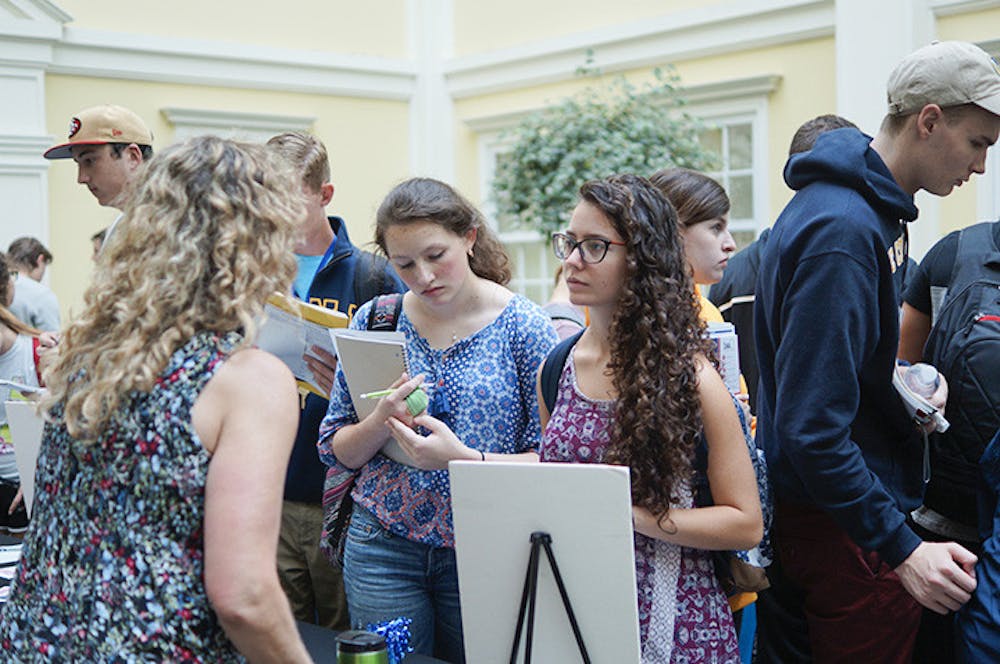By Judith Patrick
Correspondent
Students surveyed opportunities to study in a foreign country at the College’s Study Abroad Fair on Wednesday, Sept. 6.
The fair, sponsored by the College’s Center for Global Engagement, was scheduled to take place in Alumni Grove, but was moved to the Social Sciences Building due to rain.
The Social Sciences Atrium was filled to the brink with tables and representatives from a range of study abroad programs, including the Washington Center, the Foundation for International Education, the Institute for Study Abroad, and the Council on International Educational Exchange.
Studying abroad is “about finding the right fit with the goals of each student,” said Derek Craker, a representative from International Studies Abroad, which offers multiple programs for college students.
Craker, like the rest of the representatives at the Fair, was more than ready to explain any part of the process to clear up students’ confusion and offer as much help as possible.
When asked by one hesitant student which study abroad time frame is the best “bang for your buck,” Craker explained that there are a variety of time frame options fit for every student.
“There are an array of time options,” Craker said. “There’s year-long, semester-long, summer study abroad, winter study abroad, and the January-term for the more intensive-short-term program.”
Craker’s enthusiasm for studying abroad stems from his own experiences in college.
“I’m biased because when I studied abroad, I went for a semester,” he said. “I would recommend a semester. But I’ve talked to people who went for shorter than that and from what I’ve heard from them, it seems like they got just as much from a few weeks as another would get from a full semester term.”
Financial worries are most common concern for students considering studying abroad options. Craker was able to give some tips on how best to start the search with financial limitations in mind.
“Talking to the financial aid office, or essentially, talking to the study abroad office is really going to answer all of (your financial questions) for you,” Craker said, also noting that some study abroad programs offer scholarships.
When it comes to worries regarding classes, schedules, and graduating on time, Craker suggests that students talk to their advisors to find the best fit for them.
Student representatives from the College’s faculty led trip to Harlaxton, England this past summer reiterated that same ideal — don’t let the money barrier stop you from studying abroad.
Faculty advisor Michele Tarter explained how studying abroad gives students a chance to grow both academically and personally.
“I think study abroad is a critical component of a liberal arts education. It raises students’ global consciousness, immerses them in different cultures, and ultimately makes them engaged citizens of the international community,” Tarter said. “It is, in my opinion, the richest experiential education a student can have. It changed my life, when I was a college student, and I am now committed to sharing this life-changing opportunity with my students at TCNJ.”
The table of students also fondly reflected on the experiences they had over the three weeks they spent traveling to five different countries, getting academic credit for their time spent away and meeting strangers that would become lifelong friends.
Representatives from a variety of tables offered similar advice — the expense shouldn’t stop you from studying abroad and be open to going anywhere.
At the end of the day, if a student truly wishes to study abroad, then they can find a way to make it a reality.







